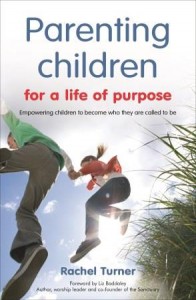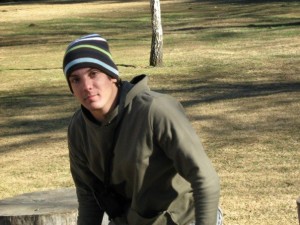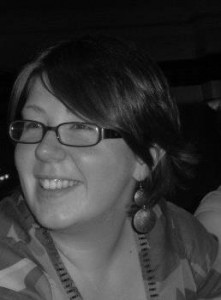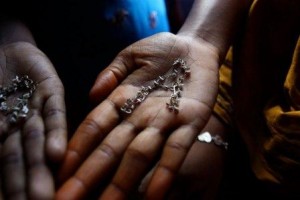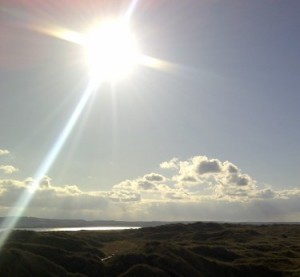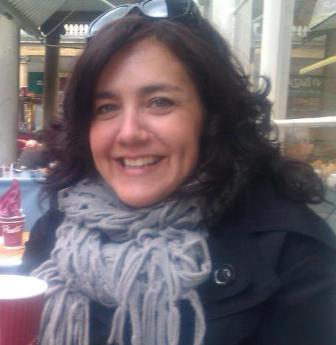
I have always struggled with prayer. It’s quite ironic then that God is using me to mobilise prayer through United Christian Broadcasters (UCB) and across the nation!
Since 2009, I have worked for UCB, first as a part-time contractor as the editor of the Prayer for Today magazine, and now, full-time as the Editor of the online UCB Prayer platform which aims to encourage and equip people to pray to see transformation in our lives, community, nation and world.
So, let’s go back to where it all started….
I gave my life to the Lord in 2004 after returning from travelling around the world for a year on my own. I knew then that God had a big plan for my life because he had bought me into a church to work as a temp where I subsequently gave my life to him a month later. I was so blessed to be in a place where I could grow spiritually and have questioned answered.
However, my big stumbling block was prayer. I couldn’t pray out loud as I felt so inadequate and like I was doing it wrong.
But although I thought I wasn’t praying, I actually was. I was talking to God about my frustrations, hopes and dreams without realising I was praying to him.
Prayer is simply communicating with the God that created us and developing a relationship of intimacy with him.
I asked God to teach me how to pray and about a year later, he took me to work at the World Prayer Centre in Birmingham where I had no choice but learn to pray!
In the past 10 years, God has taken me on a journey of discovery in terms of prayer.
Prayer can be contemplative, vocal, creative, sung, written… there are so many ways. But the essence of it is to catch the heart of God and pray according to his will.
God can do anything but he uses us, his beloved children, to bring about his will on earth through what we speak into existence when we hear his still small voice.
Prayer is not just for people who are super holy.
It’s for everyone who wants to know God more and when we invite God into our lives, he begins to change us on the inside. And that’s what he did for me with prayer.
I know the importance of prayer. I had seen God answer prayer in miraculous ways and know the power of praying to bring the supernatural into the natural.
About five years ago, I got married and moved to a new church. I grow in my prayer life, but still struggled to pray out loud in corporate meetings, but God began to work in getting rid of the fear in me, and he has used my local church as a training ground in prayer.
I said to God that if the church leadership challenged me to do anything I would take it that it was from him and they saw something that I didn’t. They began to challenge me to lead a prayer meeting, then pray on the mic at a women’s conference, then lead a session of all-night prayer.
Inside I wanted to say ‘no’ but I said ‘yes’. I’ve learned that sometimes we have to step out of our comfort zone in order to grow.
It was around this time that I came to work at UCB. I was asked to be the editor of a magazine, which I had no previous experience of doing, but I knew it was God. I was heading up the Prayer for Today which encouraged people to pray and I was still having my own struggles in my prayer life.
I’ve been through dry seasons that seem to last forever but through it all I have never given up and have learned to press into God. I remember asking God, “Why me?” When God could use someone who is a prayer warrior, why does he use me?
He gave me 2 Corinthians 12:9: “My grace is all you need. My power works best in weakness.”
So now I am glad to boast about my weaknesses, so that the power of Christ can work through me.
It was then that I realised that I could not do what I do in my own strength.
He wanted to use someone who couldn’t pray out loud and who struggled with prayer to encourage other people to pray. In my weakness, he is strong and so he gets all of the glory.
I am so honoured that God can use me for such a huge task.
In recent years, I have started to see a rise in prayer across the nation. God is on the move!
Before every move of God, he calls his people to pray.
We are in exciting times and we need to get to the place where we are listening to the Father and being obedient when he directs us.
Prayer requires action. We need to be the hands and feet of God.
So I want to encourage everyone to pray without ceasing.
Speak to God and find out what he wants you to do, because when we are all doing his will, nothing is impossible and we can bring a little bit of heaven on earth!
We hope you’ve been inspired and empowered by hearing Natasha’s story and her heart for prayer. Don’t forget to visit the UCB prayer platform, which is packed full of great articles on all aspects of prayer… including a couple from the Sanctuary!
